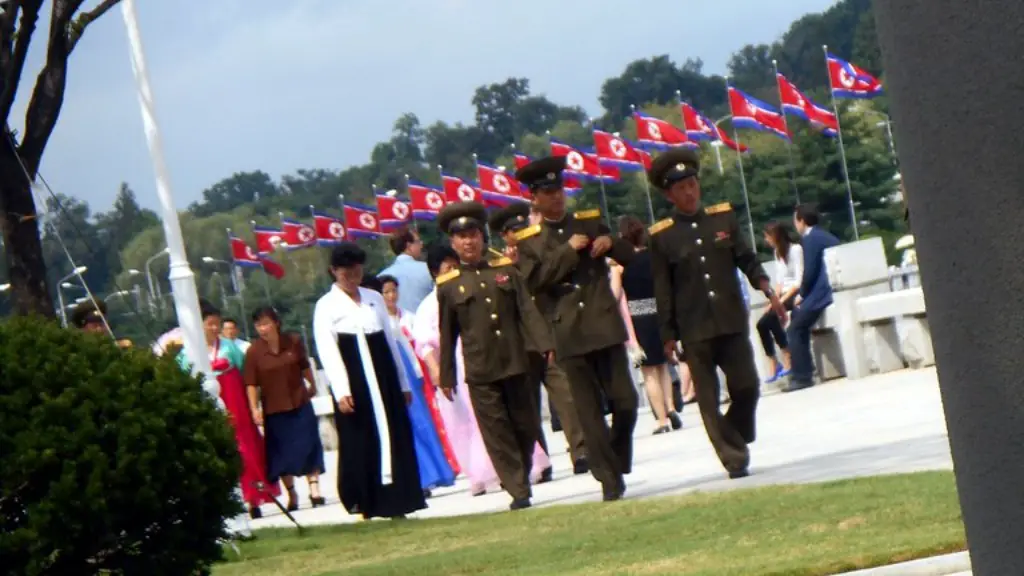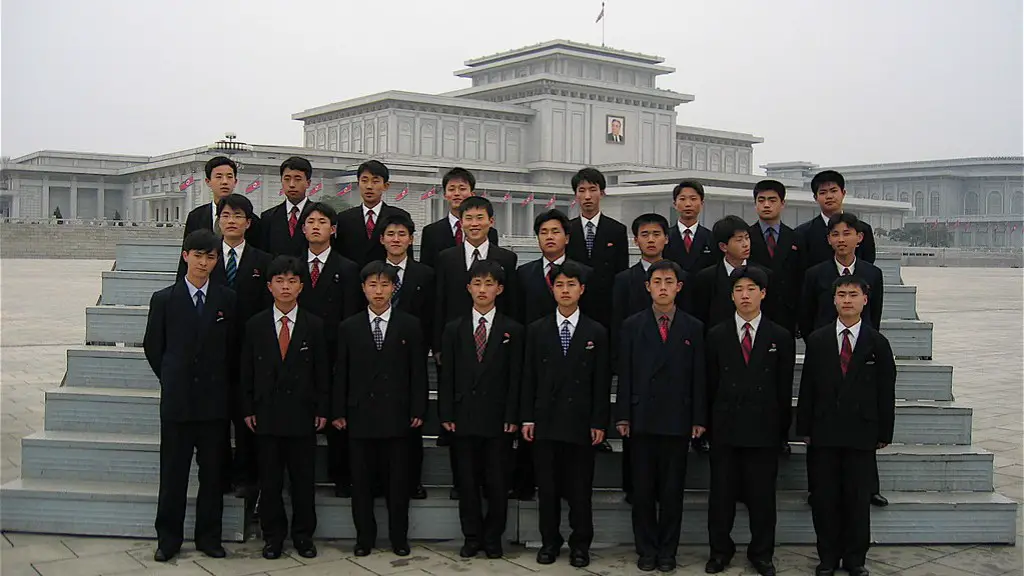In recent weeks, China has been expressing increasing concern around North Korea’s nuclear ambitions. As tensions continue to rise in the Korean Peninsula, the superpower is making its position clear. It is important to understand what China is saying about North Korea and how their response could shape regional dynamics.
China has been an ally of North Korea for decades, and for much of this time has acted as a mediator. It has consistently balanced stability in the region against supporting North Korea’s stance. Over the years, China has encouraged North Korea to negotiate with the United States, but this relationship has been strained since North Korea began its accelerated nuclear program in 2006. This accelerated development prompted the United Nations to impose many sanctions on the country, and the situation remains tense.
China’s attitude towards North Korea has become increasingly critical in recent months, as it has become clear that sanctions have not been effective in dissuading its nuclear ambitions. In May, Chinese Foreign Minister Wang Yiahi made a statement that “dialogue and negotiation are the only way out” for North Korea, as China was “gravely concerned” about the situation. China has also condemned North Korea’s recent ballistic missile tests, further demonstrating its commitment to preventing further escalations.
Nevertheless, China remains publicly committed to supporting the North Korean regime. It has consistently rejected the imposition of sanctions on North Korea, despite the growing pressure, citing the potential for the situation to worsen. Chinese foreign policy experts have pointed out that any economic sanctions could have a damaging effect on the country, possibly destabilizing it and disrupting the region. This suggests that China is in favor of dialogue rather than sanctions.
China’s attitude towards North Korea is also shaped by its desire to maintain its own influence in the region. Beijing has invested in North Korea for many years, and any deterioration in their relationship could have significant negative impacts on China’s economy. Therefore, it is in China’s interest to continue to act as a mediator between North Korea and the United States, and to prevent the situation from escalating further.
It is clear that China is playing a crucial role in managing the tensions in the Korean Peninsula. The superpower is taking a clear stance on the issue, expressing its concerns while also seeking to protect its own interests. However, it remains to be seen whether China’s response will be enough to dissuade North Korea from continuing its nuclear ambitions.
What’s China’s Response to the US
China has responded to the United States’ pressure on North Korea by seeking a diplomatic solution. Chinese President Xi Jinping recently met with US president Donald Trump in an attempt to find a peaceful solution to the crisis. However, China has also been critical of the US’s demands, expressing concerns about the impact of sanctions and the potential for further escalation.
The Chinese government has urged the US to focus on diplomacy rather than force in its negotiations with North Korea. The Foreign Minister Wang Yi stated that “dialogue and negotiation are the only way out”, suggesting that China is in favor of a more relaxed approach from the US.
At the same time, China has also sought to protect its own interests, stating that it is “gravely concerned” about the situation in North Korea and stressing the need for a peaceful resolution. This indicates that, while China is willing to help mediate the situation, it is ultimately committed to maintaining its own influence and avoiding economic damage in the region.
It is clear that China’s response to the US has been based on a careful balancing act. On the one hand, China seeks to protect its own interests, while on the other, it is trying to ensure a peaceful resolution to the crisis. This delicate balance demonstrates the complexity of the situation in the Korean Peninsula, and the importance of China’s role in managing it.
Are Economic Sanctions the Answer?
The US and its allies have been pushing for ever-increasing sanctions against North Korea, in an effort to pressure the regime into giving up its nuclear weapons program. However, as China has pointed out, these sanctions could have devastating effects on the country, and could even lead to further escalations. Therefore, it is important to consider the potential consequences of economic sanctions before taking any action.
North Korea is already an extremely poor country, and the economy is heavily reliant on trade with China. Sanctions could further hinder the country’s ability to access food, medicine, and other vital resources, which would have a devastating impact on the civilian population. This could lead to a further destabilization of the region, as desperation could lead to retaliatory actions. Therefore, economic sanctions should be considered with caution.
In addition, sanctions could also further damage the diplomatic relationship between North Korea and the US. North Korea has warned that any further sanctions would be viewed as an “act of war” and could lead to further escalations. Therefore, a carefully considered strategy is needed if the US and its allies are to discourage North Korea’s nuclear ambitions without further damaging the situation.
It is clear that economic sanctions are not a simple solution to the crisis in the Korean Peninsula. Before any action is taken, it is important to consider the potential repercussions. China has made it clear that it is in favor of a diplomatic solution rather than heavy-handed economic punishment, and it is likely that such an approach would be more effective in the long run.
China’s Views on Denuclearization
Although China has been vocal in its support of North Korea, it is also a strong advocate of denuclearization. Beijing has consistently called for North Korea to engage in dialogue, and has urged the regime to give up its nuclear weapons program. This stance has been reaffirmed by Chinese President Xi Jinping in recent discussions with US President Donald Trump.
The Chinese government has repeatedly stated that it is in favor of a denuclearization process in North Korea, but has also pointed out that it must be done through diplomatic means rather than force. This demonstrates China’s commitment to finding a peaceful solution to the crisis, and its willingness to act as a mediator between North Korea and the United States.
At the same time, China has been critical of the US’s aggressive stance on North Korea, warning against the imposition of economic sanctions which could lead to further instability in the region. This shows that China is ready to stand up for North Korea while also expressing concern about the potential repercussions of any harsh action.
It is clear that China is taking a diplomatic stance on the issue of denuclearization in North Korea. The superpower is in favor of dialogue and negotiation, and is committed to preventing the situation from escalating further. However, only time will tell whether its efforts will be enough to persuade North Korea to give up its nuclear ambitions.
What Can Be Done?
The situation in the Korean Peninsula is extremely complex, and resolving the crisis will require a carefully considered strategy from both North Korea and its neighbors. If North Korea is to be persuaded to abandon its nuclear weapons program, then it must be done through dialogue and negotiation rather than Force.
It is clear that China is central to this process. The superpower has been vocal in its support for North Korea, and has urged the regime to engage in dialogue with the US. China’s opinions carries significant weight in the region, and its stance on the issue could have a major impact on the resolution of the crisis.
In addition, the US and its allies must consider the potential impact of their actions before imposing economic sanctions on North Korea. Sanctions could have devastating effects on the country, and could lead to further escalations. Therefore, it is important that any action taken is carefully thought-out and designed to promote a peaceful resolution rather than further instability.
Ultimately, it is up to North Korea to decide whether to abandon its nuclear weapons program. However, it is clear that if the crisis is to be resolved, then the international community must work together to find a diplomatic solution. This means that all parties must be willing to come to the negotiating table and find a way forward.





